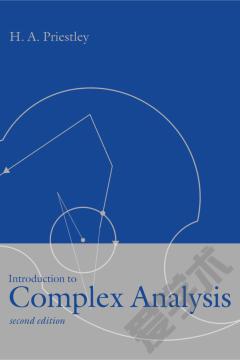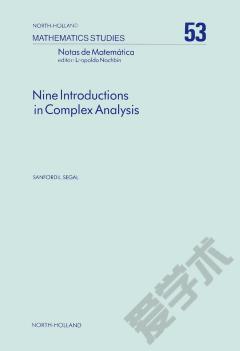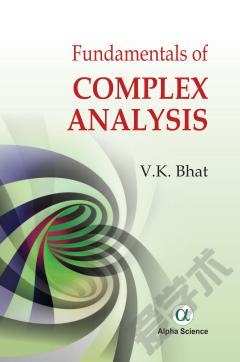Introduction to Complex Analysis
Part 1 The complex plane: complex numbers open and closed sets in the complex plane limits and continuity. Part 2 Holomorphic function and power series: complex power series elementary functions. Part 3 Prelude to Cauchy's theorem: paths integration along paths connectedness and simple connectedness properties of paths and contours. Part 4 Cauchy's theorem: Cauchy's theorem, level I and II logarithms, argument and index Cauchy's theorem revisited. Part 5 Consequences of Cauchy's theorem: Cauchy's formulae power series representation zeros of holomorphic functions the maximum-modulus theorem. Part 6 Singularities and multifunctions: Laurent's theorem singularities meromorphic functions multifunctions. Part 7 Cauchy's residue theorem: counting zeroes and poles claculation of residues estimation of integrals. Part 8 Applications of contour integration: improper and principal-values integrals integrals involving functions with a finite number of poles and infinitely many poles deductions from known integrals integrals involving multifunctions evaluation of definite integrals. Part 9 Fourier and Laplace tranforms: the Laplace tranform - basic properties and evaluation the inversion of Laplace tranforms the Fourier tranform applications to differential equations proofs of the Inversion and Convolution theorems. Part 10 Conformal mapping and harmonic functions: circles and lines revisited conformal mapping mobius tranformations other mappings - powers, exponentials, and the Joukowski transformation examples on building conformal mappings holomorphic mappings - some theory harmonic functions.
{{comment.content}}








 京公网安备 11010802027623号
京公网安备 11010802027623号